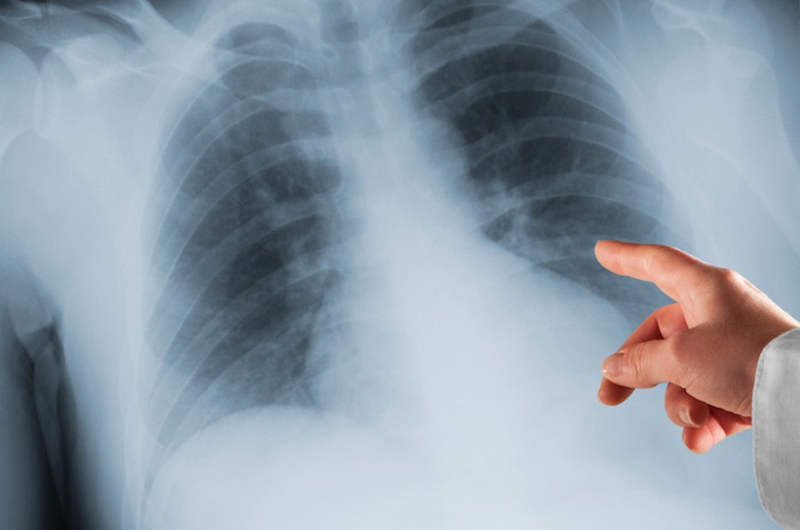Gastroesophageal reflux disease or commonly known as GERD is a condition where the content of your stomach is returned back up into the esophagus.
Normally, the lower esophageal sphincter (LES) serves as a stomach gate where it opens so that food can enter to the stomach and closes to prevent acidic stomach juice and food to flow back into the esophagus. GERD occurs when the LES is not functioning properly or weak, allowing the content of the stomach to go back up into the esophagus.
Who are more likely to get GERD? People that are fan of eating trigger foods and beverages such as peppermint, chocolate, coffee, fried or fatty foods and alcoholic beverages have greater risk. Pregnancy and obesity can also contribute in developing GERD. And maybe some conditions could be related with it, like asthma.

Are People with Asthma At Risk of GERD?
A research has shown that more than 75% of adults who have been diagnosed with asthma also have GERD. The likelihood of developing GERD is twice as much as those that don’t have asthma.
Is there a connection that links GERD and asthma? The link between them is a two-way street. Frequent heartburn caused by GERD can either trigger asthma or can make the symptoms worst. If you have asthma, the likelihood of having GERD is higher.
It is quiet uncertain why these two conditions go closely together, yet some doctors know that the link involves your airways and stomach acid. Keep reading to learn more about it.
How GERD Affects Asthma
Heartburn occurs when your esophagus – the tube that connects your throat and stomach - is not working properly, which results to the acid from your stomach to go up into the esophagus. This condition is commonly called an “acid reflux.”
Acid reflux is characterized by a burning feeling in your chest. Though most people are experiencing this every now and then, you should be concerned if it has been a long-term condition as it’s a sign of GERD.
Then how can the GERD trigger the latter and makes the symptoms worst? There are two ways that will cause it:
1. Acid touches the nerves in your esophagus.
This condition triggers a chain reaction where your brain receives a signal from the nerves to launch an action to protect the nerves from the acid. As a result, your body narrows the airway as a defense to keep the acid out and this triggers the start of asthma symptoms.
2. Stomach acid directly gets into your lungs.
When the acid reached your lungs, it triggers an irritation on your airway which makes you cough, wheeze, and feel tightness in your chest.
How would you know if GERD and asthma are related? Pay attention to the following signs:
You have experienced the symptoms of asthma when you’re already an adult.
The symptoms get worse after you have exercised, eaten or lay down.
You don’t respond well to regular asthma treatments.
You often have a hoarse voice or a recurring cough.
Tests such as endoscopy, X-ray, ambulatory acid test and esophageal impedance test may be recommended by your doctor to confirm if you have GERD that is related with your asthma.
How Asthma Affects GERD
Asthma can also trigger the GERD symptoms like what GERD has affected asthma. But how?
When a patient is suffering from an asthma attack, there is a pressure change in his chest and abdomen. This pressure is said to aggravate GERD. Because of the increased pressure in the stomach during an asthma attack, the muscle that usually stops acid reflux becomes weak and lax, which causes the stomach acid go back up into the esophagus.
What to Do When You Have GERD and Asthma
Since these two conditions are highly caused by lifestyle and diet choices, treatment would also be successful if these two areas are changed. To prevent or control the symptoms of GERD, remember these tips:
Lose weight – when a person is overweight, the pressure in their stomach and esophagus increases, causing acid reflux.
Eliminate the use of tobacco or cigarettes – Nicotine triggers your esophageal sphincter to lax. An acid reflux may occur when this happens.
Avoid foods and drinks that can trigger acid reflux such as chocolate, caffeinated or alcoholic beverages, fried foods, citrus fruits, high-fat foods, fried foods, onions, garlic, mint, and tomato based foods such as salsa, pizza and spaghetti sauce.
Eat smaller meals – Instead of having three big meals, try eating five to six small meals. The possibility of acid reflux is reduced when your stomach doesn’t have to digest big amount of food.
Avoid lying down after you’ve eaten – Lying down within 3 hours after your meal increases the possibility of acid reflux. Also keep your head elevated using a wedge pillow.
Avoid eating a big meal a few hours before you sleep.
Wear loose belt and clothing.
To relieve the symptoms of asthma, you may try:
Taking fish oil supplements
Natural herbs such as dried ivy or butterbur
Ginkgo extract
Deep breathing exercises
Medical Treatments
There are certain medications for these conditions, but are not so effective. Proton pump inhibitors (PPI) such as omeprazole and esomeprazole are popularly prescribed to control acid reflux and help alleviate the symptoms of asthma as well. A 2009 study though that was published in the New England Journal of Medicine shown that these drugs were not effective in treating asthma attacks. What's worse, there are some medicines that are popularly used for asthma may worsen acid reflux, such as beta-adrenergic bronchodilators and theophylline. So always consult with your doctor first before taking medications for the GERD and asthma.
View All Comments /Add Comment